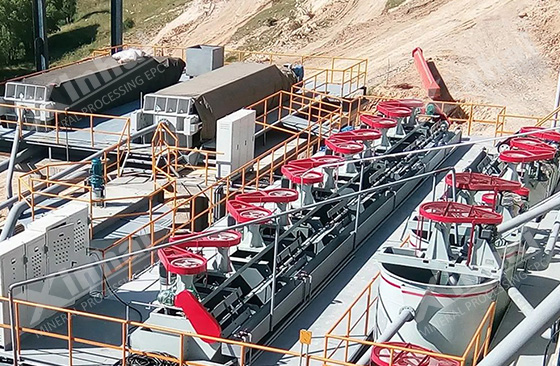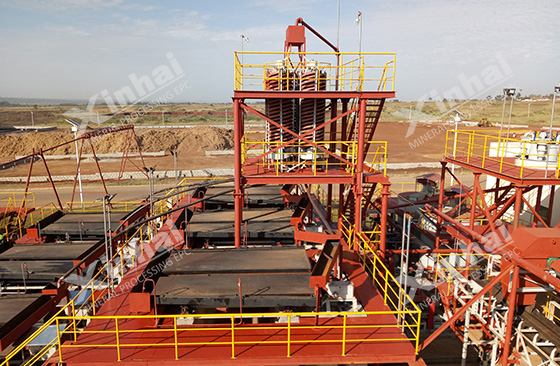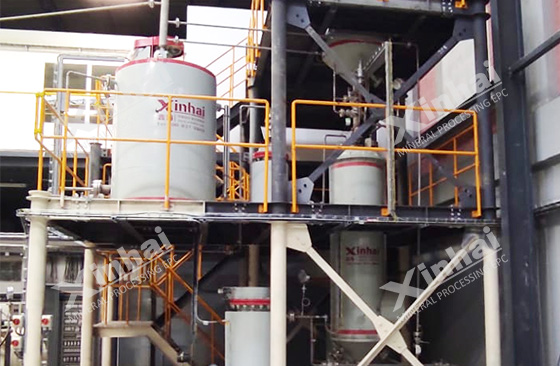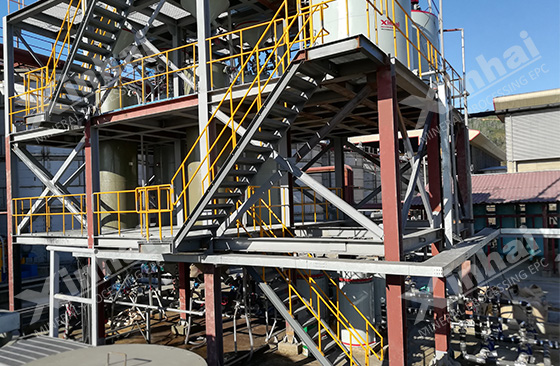
Silver, as a valuable precious metal, is widely used in and industries such as jewelry, coins, electronics, medical and industrial fields. Through silver ore beneficiation, silver ore resources can be effectively developed and utilized to meet the market demand for silver. There are various methods of beneficiation of silver ore, mainly including flotation, gravity separation, cyanidation and leaching. The following will introduce these methods of silver extraction process.

Flotation is a method commonly used for silver extraction, especially for sulfide ores. Specific process: The pulp after crushing and grinding is added to the flotation machine. During flotation, appropriate flotation agents need to be added to the pulp to help the enrichment of silver ore. After the silver minerals in the foam product are separated from the liquid, further processing yields pure silver. Flotation is especially suitable for extracting silver from sulfide ores, and is widely used in mineral processing plants.
The cyanidation process is suitable for the treatment of silver-containing sulfide ores. The specific process is: the silver-containing ore is crushed and finely ground to an appropriate particle size, and then sent to a leaching tank with a sodium cyanide solution for reaction, and the silver is dissolved in the solution . The silver-containing solution is taken from the leach tank or reactor and the silver is recovered by precipitation, immobilization and electrolysis. After these steps, silver can be extracted from silver-containing sulfide ores using cyanidation. Cyanidation is a widely used method, but because it involves toxic substances, it must be used with care and strict safety regulations.

Gravity separation is one of the methods commonly used in silver extraction process. The following are the general steps for silver ore extraction using gravity separation technology:
Silver ore is crushed and finely ground to bring the ore particles to the proper size. According to the characteristics of the ore, some pretreatment steps can be carried out, such as removing clay, cleaning the ore, etc., to reduce the interference of impurities in the subsequent gravity separation process. Commonly used gravity separation equipment includes jigs, spiral chute, shaking tables, etc. These devices separate heavy silver minerals from light waste rock by utilizing the difference in specific gravity of the different minerals in the ore. During gravity separation, the silver minerals are separated to form a concentrate enriched in silver minerals. The silver can then be further recovered and purified through further processing steps such as magnetic separation, flotation, cyanidation, etc. Gravity separation is a simple and effective method of silver extraction process, especially for ores containing larger particle sizes and more pronounced differences in specific gravity. However, its separation effect is limited by the characteristics of the ore, so other extraction methods need to be considered comprehensively in practical applications to improve recovery rate and concentrates grade.

Leaching is a commonly used silver extraction process, especially suitable for silver ores containing silver sulfide or silver mineral forms. The following are the general steps of the silver ore leaching process:
Silver ore is crushed and finely ground to make fine particles, increasing its surface area for the leaching process. For silver ore extraction, there are two main leaching methods: heap leaching and tank leaching.
1. Heap leaching: Pile crushed and finely ground silver ore on an impermeable cushion or liner structure to form a heap. A leach solution (usually a dilute cyanide or acid solution) is sprayed onto the heap. The solution seeped through the heap, leaching the silver from the ore. The leach solution (containing dissolved silver) is collected at the bottom of the heap.
2. Tank leaching: Finely ground silver ore is mixed with a leach solution in a tank or reactor. The leach solution can be either cyanide-based or acid-based and is stirred or agitated to ensure thorough mixing and contact with the ore. Silver is leached into solution to form a leach solution (PLS) containing dissolved silver.

Silver Recovery: Once the silver has been leached into the silver-containing leach solution (PLS), further steps are used to recover the silver from the solution.
1. Precipitation method: Add chemical agents, such as zinc powder or sodium sulfide, to the silver-containing leaching solution to precipitate silver in the form of silver sulfide or silver compounds. The precipitated silver is then separated from the solution.
2. Electrolysis method: The silver-containing leaching solution (PLS) can be electrolyzed, and an electric current can be passed through the solution. The silver ions migrate towards the cathode and are reduced, depositing metallic silver on the cathode.
The above are four silver extraction process methods, namely silver ore flotation, cyanidation, gravity separation and leaching. The specific silver extraction process method should be selected according to the characteristics of the ore, the production requirements of the beneficiation plant and the budget. Xinhai Mining can provide "Turn-key Service for Mineral Processing Service (EPC+M+O)" including beneficiation test, beneficiation scheme design, beneficiation equipment manufacturing, delivery and transportation, installation and commissioning, etc., and deliver them within the specified time limit projects, to achieve project production on time and up to standard.
To find out more about our products and solutions, please fill out the form below and one of our experts will get back to you shortly.